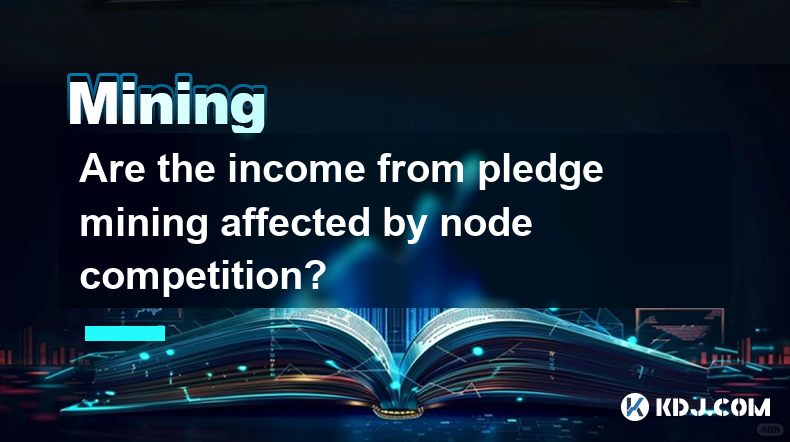-
 Bitcoin
Bitcoin $85,241.9855
0.76% -
 Ethereum
Ethereum $1,597.0257
0.52% -
 Tether USDt
Tether USDt $0.9994
-0.05% -
 XRP
XRP $2.0813
0.09% -
 BNB
BNB $590.8186
-0.10% -
 Solana
Solana $138.8687
3.49% -
 USDC
USDC $0.9997
-0.01% -
 Dogecoin
Dogecoin $0.1581
1.70% -
 TRON
TRON $0.2425
-0.85% -
 Cardano
Cardano $0.6270
1.80% -
 UNUS SED LEO
UNUS SED LEO $9.3414
2.15% -
 Chainlink
Chainlink $12.7688
1.17% -
 Avalanche
Avalanche $19.5247
2.22% -
 Stellar
Stellar $0.2463
0.89% -
 Toncoin
Toncoin $2.9696
-0.86% -
 Shiba Inu
Shiba Inu $0.0...01220
1.48% -
 Hedera
Hedera $0.1659
0.03% -
 Sui
Sui $2.1398
0.53% -
 Bitcoin Cash
Bitcoin Cash $337.5386
1.43% -
 Hyperliquid
Hyperliquid $17.9149
7.71% -
 Polkadot
Polkadot $3.7371
0.29% -
 Litecoin
Litecoin $76.0076
0.32% -
 Dai
Dai $0.9998
-0.01% -
 Bitget Token
Bitget Token $4.4680
2.24% -
 Ethena USDe
Ethena USDe $0.9991
0.00% -
 Pi
Pi $0.6477
3.98% -
 Monero
Monero $214.7885
-2.24% -
 Uniswap
Uniswap $5.2466
0.85% -
 OKB
OKB $50.8708
1.47% -
 Pepe
Pepe $0.0...07202
0.85%
Are the income from pledge mining affected by node competition?
Staking cryptocurrency rewards depend heavily on node competition; more nodes mean less reward per staker, while network activity and protocol design also significantly influence profitability.
Mar 23, 2025 at 01:56 pm

Are the Income from Pledge Mining Affected by Node Competition?
Staking, or pledge mining, in the cryptocurrency world involves locking up your cryptocurrency holdings to support the network's operations and earn rewards. However, the profitability of this activity is not static. A significant factor influencing returns is the level of competition amongst nodes participating in the consensus mechanism.
The intensity of competition directly impacts the rewards received per staked coin. When fewer nodes participate, the rewards are distributed amongst a smaller pool, leading to higher returns per individual staker. Conversely, a surge in node participation dilutes the rewards, resulting in lower payouts for each individual. This is a fundamental aspect of the economic model of many proof-of-stake blockchains.
This competition is multifaceted. It's not just about the sheer number of nodes, but also their size and technical capabilities. Larger nodes, often run by well-resourced entities, may possess advantages in terms of infrastructure and efficiency, potentially allowing them to capture a disproportionate share of the block rewards. This creates an uneven playing field for smaller stakers.
Furthermore, the network's overall activity and transaction volume influence profitability. Higher network activity translates to more frequent block rewards, potentially offsetting the effects of increased node competition. Conversely, periods of low activity can exacerbate the negative impact of competition, leading to meager returns.
The specific consensus mechanism employed by a blockchain also plays a vital role. Some protocols utilize mechanisms that prioritize certain nodes or reward them more generously, creating variations in reward distribution, even with similar levels of overall node participation. Understanding the specifics of the chosen consensus mechanism is crucial.
Let's examine how different aspects of node competition affect staking rewards:
- Increased Node Count: A higher number of validators participating in the network increases competition for block rewards, resulting in a smaller share for each individual node.
- Node Size and Infrastructure: Larger, more powerful nodes often have an advantage, securing more blocks and earning more rewards, potentially at the expense of smaller nodes.
- Network Activity: High network activity leads to more frequent block production, potentially offsetting the effects of intense competition. Low activity has the opposite effect.
- Protocol Design: Specific design choices in a blockchain's protocol can influence reward distribution, favoring certain types of nodes over others.
- Technical Proficiency: Nodes with better optimized software and hardware can potentially capture more rewards than less efficient nodes.
Understanding the dynamics of node competition is essential for making informed decisions about staking. It's crucial to research the specific blockchain you're considering, examining its consensus mechanism, network activity, and the overall competitive landscape before committing your assets. Remember, the rewards are not guaranteed and fluctuate based on these factors. A seemingly attractive staking opportunity could become less lucrative with a sudden increase in node participation.
The decentralized nature of many blockchains implies that the level of competition is inherently dynamic and unpredictable. This inherent volatility is a key factor that potential stakers need to accept.
Common Questions and Answers:
Q: Does staking always guarantee profit?
A: No, staking doesn't guarantee profit. Returns depend on various factors, including network activity, node competition, and the blockchain's reward structure. There's always a risk of losing potential gains due to changing market conditions and competitive pressures.
Q: How can I minimize the impact of node competition on my staking rewards?
A: There's no foolproof method to completely eliminate the impact of competition. However, strategies like joining a staking pool to share resources and risks, or selecting less congested blockchains, can help mitigate some of the negative effects. Thorough research into the chosen blockchain is vital.
Q: What are the advantages of staking despite node competition?
A: Staking offers several benefits even with competition. These include contributing to network security, earning passive income, and supporting the growth of the cryptocurrency ecosystem. The potential for reward remains, even if it’s less than in a less competitive environment.
Q: Are there blockchains less susceptible to intense node competition?
A: Some blockchains might have mechanisms that distribute rewards more evenly, or they might have a smaller overall number of validators. However, even these networks are not immune to changing competitive dynamics as adoption and participation grow.
Q: What is the role of staking pools in mitigating node competition?
A: Staking pools combine the resources of multiple stakers, increasing their collective chances of validating blocks and earning rewards. This can make it easier to compete with larger, more powerful individual nodes. However, it also involves sharing the rewards with other pool participants and potentially paying pool fees.
Q: How frequently do the rewards from staking change?
A: The frequency of reward changes depends on the specific blockchain and its reward structure. Some networks might adjust rewards regularly, while others may have more stable reward schedules. It is vital to understand the specific reward mechanism of the chosen blockchain. It's advisable to monitor the network and its dynamics to gauge the potential impact on future rewards.
Q: Can I increase my staking rewards by improving my node's performance?
A: Yes, improving your node's performance, such as by using better hardware or optimizing software, can enhance your chances of validating blocks and earning higher rewards. However, this requires technical expertise and investment. The potential increase in rewards might be offset by the costs involved.
This information is for educational purposes only and is not financial advice. Always conduct thorough research before making any investment decisions.
Disclaimer:info@kdj.com
The information provided is not trading advice. kdj.com does not assume any responsibility for any investments made based on the information provided in this article. Cryptocurrencies are highly volatile and it is highly recommended that you invest with caution after thorough research!
If you believe that the content used on this website infringes your copyright, please contact us immediately (info@kdj.com) and we will delete it promptly.
- XRP Price Prediction 2024-2025: Golden Cross Signals Potential Breakout to $3
- 2025-04-19 20:30:13
- Pi Coin: Why the Price Keeps Falling and What Could Stop It
- 2025-04-19 20:30:13
- Shiba Inu (SHIB) Is Grabbing Fresh Attention Thanks to a New Viral Post From the Official SHIB Team
- 2025-04-19 20:25:13
- The MELANIA project team has sparked a wave of speculation after offloading nearly three million Melania tokens
- 2025-04-19 20:25:13
- Galaxy Digital's Withdrawal and Staking of 606,000 SOL Tokens Sends Shockwaves Through the Solana Ecosystem
- 2025-04-19 20:20:15
- Macroeconomist and investment strategist Lyn Alden revises her Bitcoin (BTC) price prediction to $80,000
- 2025-04-19 20:20:15
Related knowledge

How to judge the stability and reliability of the mining pool?
Apr 19,2025 at 02:08pm
When engaging in cryptocurrency mining, choosing the right mining pool is crucial for maximizing your returns and ensuring a stable mining experience. The stability and reliability of a mining pool can significantly impact your overall success in mining. Here, we will explore the key factors to consider when evaluating the stability and reliability of a...

How to deal with abnormal noise during mining machine operation?
Apr 17,2025 at 01:35am
Mining machines are essential tools for cryptocurrency miners, but they can sometimes produce abnormal noises that may indicate underlying issues. Understanding how to identify and address these noises is crucial for maintaining the efficiency and longevity of your mining equipment. This article will guide you through the process of dealing with abnorma...

How to maintain anonymity when mining?
Apr 17,2025 at 06:01pm
Maintaining anonymity when mining cryptocurrencies is crucial for many miners who wish to protect their privacy and security. This article will guide you through various strategies and tools that can help you achieve a high level of anonymity while engaging in mining activities. Understanding the Importance of Anonymity in MiningAnonymity in the context...

How to automate mining tasks through scripts?
Apr 18,2025 at 01:29pm
In the world of cryptocurrency, mining remains a crucial activity for generating new coins and securing blockchain networks. Automating mining tasks through scripts can significantly enhance efficiency and reduce manual labor. This article delves into the intricacies of automating mining tasks, providing a comprehensive guide on how to achieve this usin...

How to switch mining algorithms in the mining pool?
Apr 18,2025 at 12:00pm
Switching mining algorithms in a mining pool can be a strategic move for miners looking to optimize their mining operations. This process involves several steps and considerations, and understanding how to navigate it can significantly impact a miner's efficiency and profitability. In this article, we will explore the detailed steps required to switch m...

How to avoid reduced income due to network delays when mining?
Apr 19,2025 at 12:14am
Mining cryptocurrencies can be a lucrative endeavor, but it comes with its own set of challenges, one of which is network delays. These delays can significantly impact your mining income by causing you to miss out on block rewards and transaction fees. In this article, we will explore various strategies to mitigate the effects of network delays and ensu...

How to judge the stability and reliability of the mining pool?
Apr 19,2025 at 02:08pm
When engaging in cryptocurrency mining, choosing the right mining pool is crucial for maximizing your returns and ensuring a stable mining experience. The stability and reliability of a mining pool can significantly impact your overall success in mining. Here, we will explore the key factors to consider when evaluating the stability and reliability of a...

How to deal with abnormal noise during mining machine operation?
Apr 17,2025 at 01:35am
Mining machines are essential tools for cryptocurrency miners, but they can sometimes produce abnormal noises that may indicate underlying issues. Understanding how to identify and address these noises is crucial for maintaining the efficiency and longevity of your mining equipment. This article will guide you through the process of dealing with abnorma...

How to maintain anonymity when mining?
Apr 17,2025 at 06:01pm
Maintaining anonymity when mining cryptocurrencies is crucial for many miners who wish to protect their privacy and security. This article will guide you through various strategies and tools that can help you achieve a high level of anonymity while engaging in mining activities. Understanding the Importance of Anonymity in MiningAnonymity in the context...

How to automate mining tasks through scripts?
Apr 18,2025 at 01:29pm
In the world of cryptocurrency, mining remains a crucial activity for generating new coins and securing blockchain networks. Automating mining tasks through scripts can significantly enhance efficiency and reduce manual labor. This article delves into the intricacies of automating mining tasks, providing a comprehensive guide on how to achieve this usin...

How to switch mining algorithms in the mining pool?
Apr 18,2025 at 12:00pm
Switching mining algorithms in a mining pool can be a strategic move for miners looking to optimize their mining operations. This process involves several steps and considerations, and understanding how to navigate it can significantly impact a miner's efficiency and profitability. In this article, we will explore the detailed steps required to switch m...

How to avoid reduced income due to network delays when mining?
Apr 19,2025 at 12:14am
Mining cryptocurrencies can be a lucrative endeavor, but it comes with its own set of challenges, one of which is network delays. These delays can significantly impact your mining income by causing you to miss out on block rewards and transaction fees. In this article, we will explore various strategies to mitigate the effects of network delays and ensu...
See all articles























































































